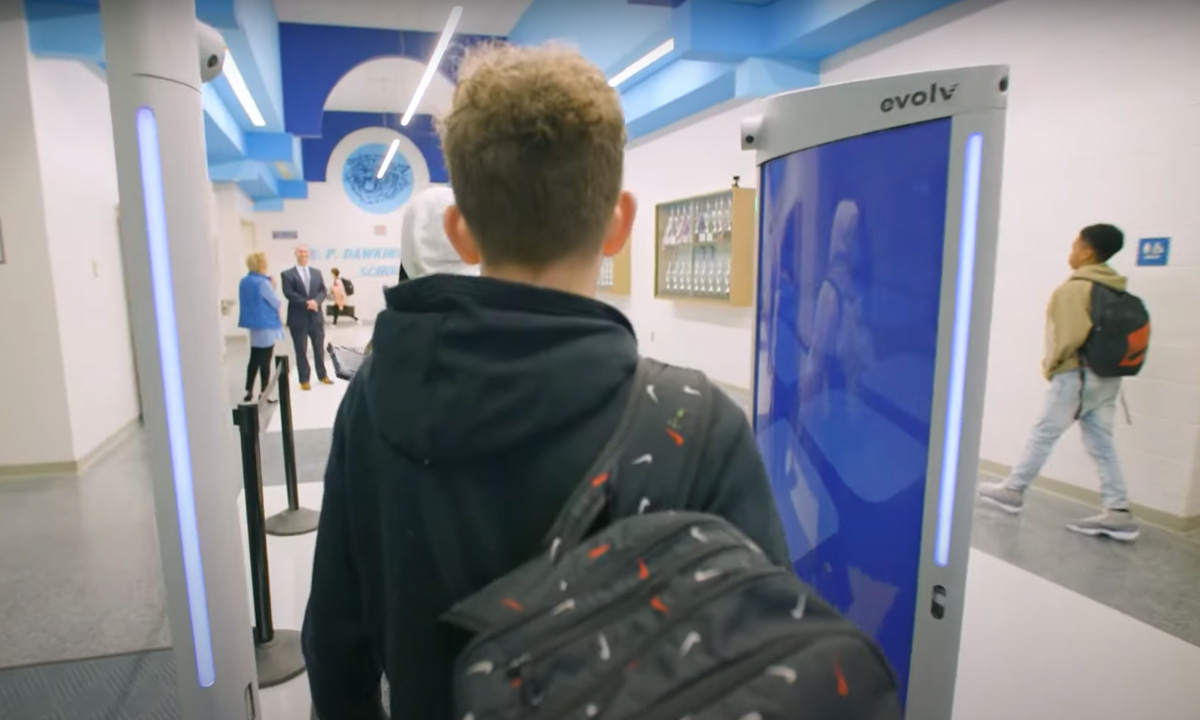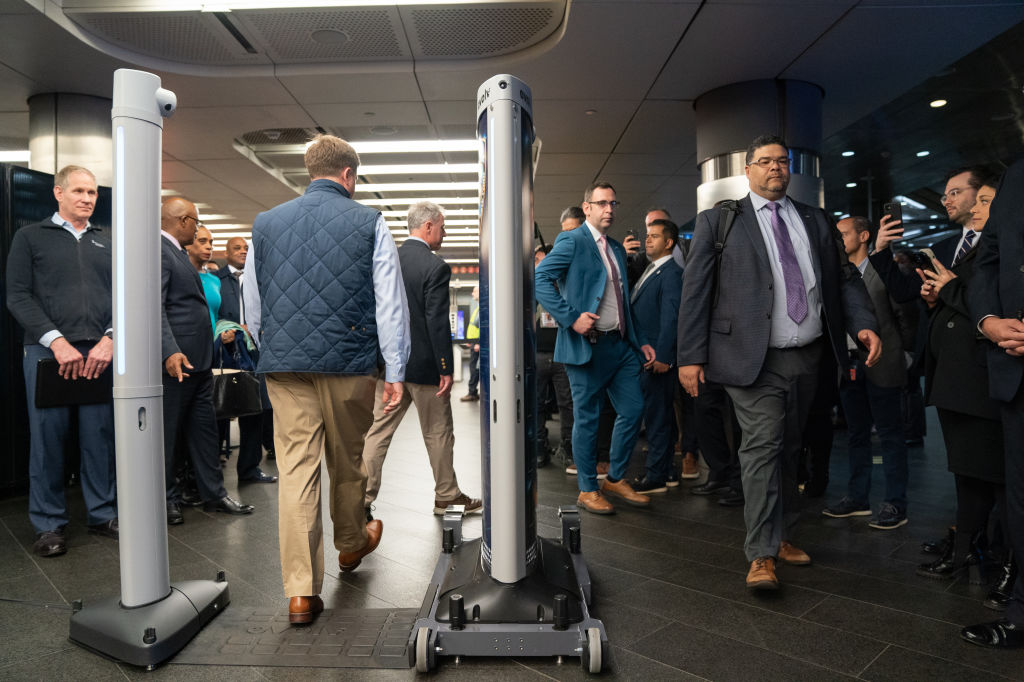FTC: AI ‘Weapons Detection’ Co. Evolv Misled Schools About its Safety Abilities
Evolv Technology claimed its school security scanners harnessed artificial intelligence to detect “all the guns, all the bombs’ at unrivaled speed.

Get stories like these delivered straight to your inbox. Sign up for The 74 Newsletter
Updated, Nov. 26
The Federal Trade Commission has accused a company that makes AI-powered security screening systems for some 800 schools across 40 states of promoting false claims about its ability to detect weapons and keep kids safe.
Evolv Technology, which sells AI-powered “weapons detection” systems to schools and other businesses, made deceptive claims to customers about its ability to detect all weapons accurately and efficiently, the commission alleged in a complaint filed Tuesday in federal court.
Schools make up half of Evolv’s business, according to the complaint, even though the publicly traded company may be best known as a security staple at stadiums and for a pilot program in New York City’s subways earlier this year that yielded dismal results.
“The FTC has been clear that claims about technology — including artificial intelligence — need to be backed up, and that is especially important when these claims involve the safety of children,” Samuel Levine, director of the commission’s bureau of consumer protection, said in a media release. “If you make those claims without adequate support, you can expect to hear from the FTC.”
Evolv’s marketing materials promote its scanners as high-tech alternatives to metal detectors, but the complaint argues the company made inaccurate assurances about the product’s ability to reduce false alarms, cut labor costs, eliminate the need for people to remove innocuous items from their pockets — and its capability to detect all weapons.
The company announced late Tuesday it had reached a settlement with the commission that did not involve any admission of wrongdoing or monetary penalties but would give certain K-12 customers a 60-day window to cancel the remainder of their current contracts.
The eligible districts account for 8% of all Evolv customers, according to a media release, and deploy 4% of its scanners. Cancelling those contracts could impact $3.9 million of its annual revenue.
“This resolution allows us to focus on a small segment of our school customers to ensure they remain satisfied with” Evolv’s scanners “and allows us to move forward without distraction,” Mike Ellenbogen, the company’s interim president and CEO, said in the statement.
Evolv has claimed that it uses AI to scan for the unique “signatures” of tens of thousands of weapons, allowing it to distinguish “all the guns, all the bombs and all the large tactical knives” out there from everyday items like keys and laptops.
In its release, Evolv framed the FTC inquiry as focusing on past marketing materials and not the efficacy of its AI technology, but it also said the company would “refine the way it markets its technology, highlighting capabilities and limitations.”

School safety consultant Kenneth Trump, president of National School Safety and Security Services, told The 74 that school leaders have increasingly turned to weapons detection systems to signal to parents that they’re taking proactive steps to keep students safe.
“Some may have unknowingly created the very result they hoped to prevent: A quandary, as they may have to explain to their school communities why they bought technology that may not be delivering what was implied or promised to them and their school community,” he said.
The scanner’s efficacy — including its wherewithal to prevent campus violence — has faced pushback for several years, particularly by IPVM, an independent security and surveillance industry research group that tests and evaluates products. Some of the schools the group researched had false alarm rates of up to 60%.
Last year, a high school student in Utica, New York, filed suit against the company after he was stabbed in a campus hallway by a classmate who brought a knife past an Evolv scanner without detection. The school district had spent $3.7 million on the scanners from Evolv, a Massachusetts-based company backed by big-name investors including Bill Gates and Peyton Manning. The company boasts its artificial intelligence-equipped devices can screen up to 1,000 students in 15 minutes — 10 times faster than traditional metal detectors.

New York City Mayor Eric Adams led a pilot program of Evolv’s scanners inside some New York City subway stations this year, which was met with opposition from civil rights groups who argued it was unconstitutional and impractical to screen millions of transit users daily. Over the course of a month, the scanners across 20 subway stations had 118 false positives and recovered 12 knives. They didn’t detect a single firearm.
The company on Tuesday pointed to two incidents last month where Evolv scanners detected guns that students were attempting to bring into their Kentucky and Illinois high schools.
As AI becomes a buzzword in education technology, the FTC in February warned companies against exaggerating the prowess of their artificial intelligence offerings, adding that “false or unsubstantiated claims about a product’s efficacy are our bread and butter.”
Get stories like these delivered straight to your inbox. Sign up for The 74 Newsletter


